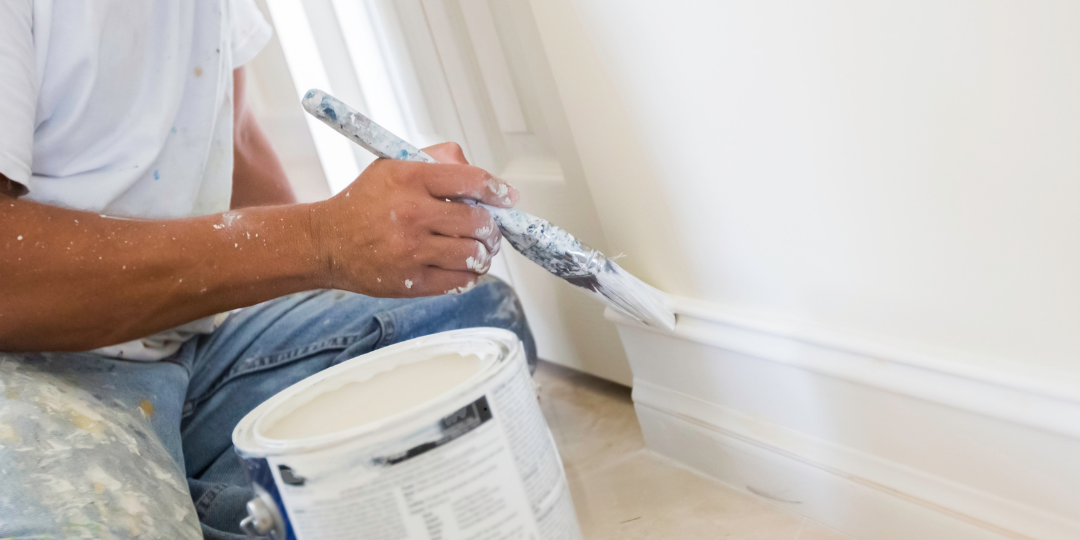SUMMER BLOG SERIES: From intention to deed - Part 2: Preparing to sell a home
Introduction
Selling a home can be an exciting and challenging time. It takes careful planning, preparation and strategy to ensure you get the best possible price and make a successful sale. In this article, we take a closer look at the important steps and considerations to take when preparing to sell a home.
The importance of good preparations for the sale
The importance of proper preparations for the sale of a home cannot be stressed enough. By investing time and effort in optimizing the presentation and solving any problems, you increase the chance of a quick sale and obtaining the desired sales price. Good preparations help potential buyers to get a positive impression of the property and can increase the competitiveness of the property on the market.

Step 1: Evaluation of the home
Before you put your property on the market, it is essential to carry out a thorough evaluation of the property. This step will help you identify potential problems, address any repairs, and improve the overall presentation of the home. By conducting this evaluation carefully, you can ensure that your home is attractive to potential buyers and leaves a positive impression. Here are the main parts of this evaluation step:
Thorough inspection of the home
It all starts with a thorough inspection of the home. Take the time to carefully go through each room and all outdoor areas and identify any flaws or repairs. Watch for things like:
- leaky taps
- broken windows
- damaged floors or walls
- electrical problems and other possible defects.
- Skirting boards, jointing, creaking in the wall,..
Many minor damages are the result of normal wear and tear through use and/or aging. These are completely normal and occur in every home after some time. However, it is better for the general presentation of the house to tackle this.
During the inspection, make notes of any points that need attention.

Check for defects and repairs
During the inspection, it is important to pay attention to any defects and repairs you encounter. These can be minor problems, such as loose door handles or worn sealant edges, but also larger issues, such as a roof leak or mold. Note all defects and make a list of repairs needed.
Consider improvements and renovations
In addition to identifying defects, it is also important to look at opportunities for improvements and renovations. Think about how you can make the home more appealing to potential buyers. This can range from freshening up paint and replacing outdated fixtures to renovating kitchens or bathrooms. Consider which improvements can increase the value of the home, which are crucial and can increase its attractiveness. Keep in mind that potential buyers will always deduct the necessary budget for critical renovations from the asking price.

Creating attractive indoor and outdoor spaces
In addition to addressing defects and possible improvements, it is important to pay attention to the overall presentation of the property. Both the indoor and outdoor areas should be attractive to potential buyers. Here are some key points to consider:
Cleaning and organizing the house
A tidy and organized home appeals to potential buyers. Get rid of excess, minimize clutter and make sure every room is clean and well organized. This helps potential buyers better visualize the spaces and get a positive impression.
Improving attractiveness
The exterior of the home is the first thing potential buyers see, so improving curb appeal is essential. Tidy up the front yard, maintain well-maintained plants, and make any repairs to the outside of the house. An inviting entrance and attractive outdoor spaces can make potential buyers enthusiastic about the home.
By conducting a thorough evaluation of the home and paying attention to both defects and improvements, you will lay a strong foundation for a successful sale.

Step 2: Research the market
One of the most challenging steps in preparing to sell a home is conducting thorough market research. This step requires a deep understanding of the complex and constantly changing real estate market. It can be a challenging task to find out current trends, comparable homes in the area and the right price for your home
Analyzing the local real estate market
Analyzing the local real estate market is no easy task. The real estate market can vary greatly from region to region and even within the same city. It takes time and effort to understand the current state of the market, the supply and demand of homes, and the price trends in your specific area. Moreover, factors such as economic developments, demographic shifts and government policy can influence the market, so it is not always easy to get a complete picture of the market and its influence on the sale of your home.

Trends and developments in the area
Identifying trends and developments in your area requires thorough research and the collection of relevant data. This information is not always readily available and may vary from neighborhood to neighborhood. It may be necessary to consult local news sources, contact local authorities, or even talk to residents to gain an understanding of the specific factors that influence the real estate market in your area.
Price history and market value of comparable homes
It takes a lot of patience, accuracy and perseverance to research the price history and market value of comparable homes. After all, information about the final sales price and special conditions are not easy to find. The real estate players in Belgium are also not very keen to make this data public, so that there is as yet no fully transparent database containing this valuable information. This is important to remember, because most homes do not always sell for their asking price.
Certain sources such as the Vastgoedbarometer of Notaris.be can give an indication, but remember that these are average prices. Other parameters such as the condition of comparable homes, the number of rooms, the surface area, etc. are not included, which means that these average prices must be interpreted with a grain of salt. It is also important to consider the specific circumstances and unique features of your home, which may not be directly comparable to other homes in the area.
Real estate brokers are also a very valuable source of information, as brokers always work locally and can rely on their own transaction history and database. For example, it often happens that in the past another house in the same street was sold by the same real estate agent. The real estate agent literally visits people, so they know exactly what the condition of a (comparable) home is, how large the rooms are, what techniques are available, etc. This is all valuable information that is used to make a representative comparison. to make. Real estate agents work at the source every day, which over time develops a very accurate feel for the local market that they can use when selling a home.
Explore similar
Researching comparable homes in the area is an essential part of determining the value of your home. However, this can be a complex and challenging task. It requires detailed research, comparing different variables and interpreting the findings to make an accurate estimate of the value of your home. In addition, you have to take into account the fact that very specific information about comparable properties is difficult to find. At best, you would literally have to enter the comparable home. But if a local resident refuses to let you in, you can end up seeing very little from the outside. As a result, you miss out on a lot of information, which increases the risk of incorrect comparisons and conclusions.
Comparing features and amenities
Comparing homes based on features and amenities requires thorough analysis and the ability to collect relevant data. It is important to consider not only the size and number of rooms, but also other aspects such as the quality of finishes, the state of repair and additional facilities.

Determining a realistic asking price
Determining a realistic asking price is a delicate balance between analyzing the market data and understanding the specifics of your home. It can be challenging to determine a price that is both attractive to potential buyers and reflects the maximum value of your home.
An incorrectly priced home can lead to a (too) long sales period, as a result of which the market may force you to ultimately drop the price sharply. This is what is meant by a burnt property on the market. Potential buyers then start to wonder why the property is still for sale, resulting in all the negative speculation.
Conducting market research is no easy task and can be overwhelming due to the many variables and complex factors to consider. It may require the help of a professional broker to make an accurate analysis and determine the right pricing strategy.
Have a valuation
One of the most common methods of determining the value of a home is to get an appraisal done by a real estate professional. For example, this could be an independent appraiser who works very analytically based on a detailed assessment of your property that includes various criteria, such as:
- the location
- the size
- provisions
- the ecological aspect of the home
- the different aspects of wear and tear
- …
An appraiser will always want to be reimbursed immediately for his services.
Another possibility is to have a valuation drawn up by a real estate agent.
This professional will make a valuation (estimate) for the sale of the home as a starting point, so in context with the market as discussed above. Most real estate agents make this estimate completely free of charge and hope to be compensated for this at a later time, after the effective sale of the property in the event of a collaboration.
Conclusion
In this article, we've covered the crucial steps needed to prepare for a successful home sale. We started with the introduction, in which we underlined the importance of proper preparation and explained the purpose of the article: to provide valuable information and practical tips for sellers.
The steps of "Evaluation of the property" and "Research of the market" are critical phases in this process. Properly conducting a thorough inspection, identifying defects, considering improvements and understanding the market value are vital to bringing an attractive and competitive property to the market.
While these steps can be challenging, it's important to remember that they are the foundation of a successful sale. It is wise to work with experienced brokers or real estate experts, who can assist you in analyzing the market and determining the right pricing strategy. With thorough preparation and expert guidance, you increase the chance of a satisfactory result and a smooth sale in the competitive real estate market. By following these valuable steps, you can optimally present your home and convince potential buyers of the value and attractiveness of the property.
The next step: putting the property on the market
The preparatory work has been done and the strong foundations for a good sale have been laid.
In next week's article, we look at the various options for effectively marketing the property: do you do it yourself or do you let a real estate agent assist you?
Until then!

